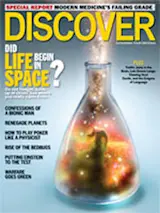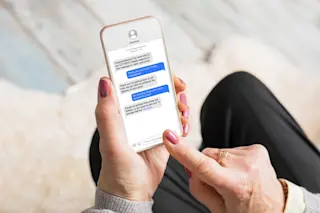A postdoctoral memory researcher at Stanford University, Jesse Rissman is studying how much fMRI scans (which measure activity in the brain) can reveal about what a person is thinking. Along the way, he is raising a big red flag to those who want to use brain scans to peer into the heads of suspected criminals.
What got you interested in brain scans in the courtroom? In India, a woman was convicted of murder using a technology that recorded electrical activity from the scalp while she was viewing or listening to materials related to the crime. When I learned more about the tests and how widely they were being used in the Indian legal system, I realized these techniques need to be evaluated in a more rigorous way.
How do you look for memories? We had people study photographs of faces. Then, while they were in an fMRI scanner, we showed ...















